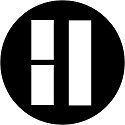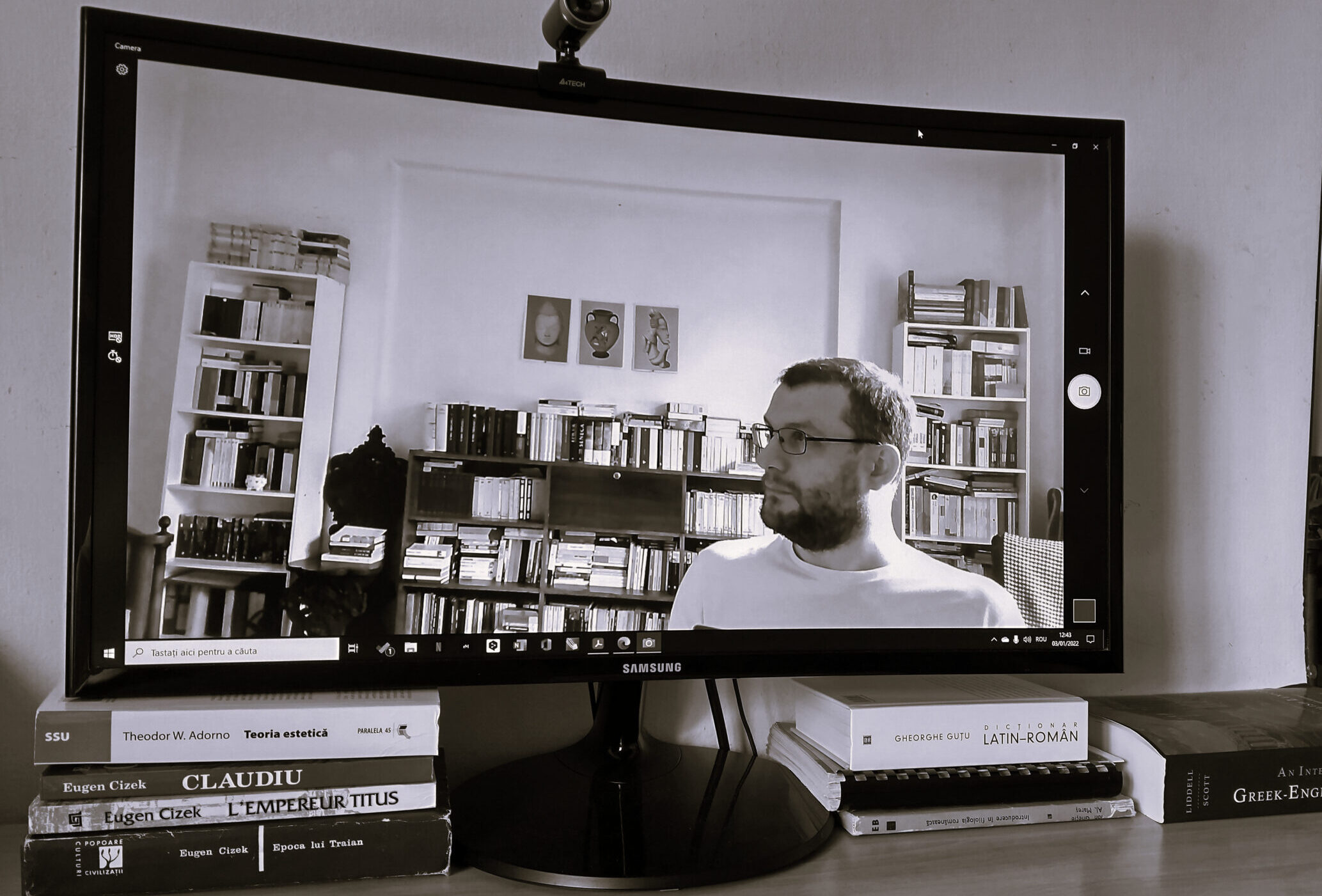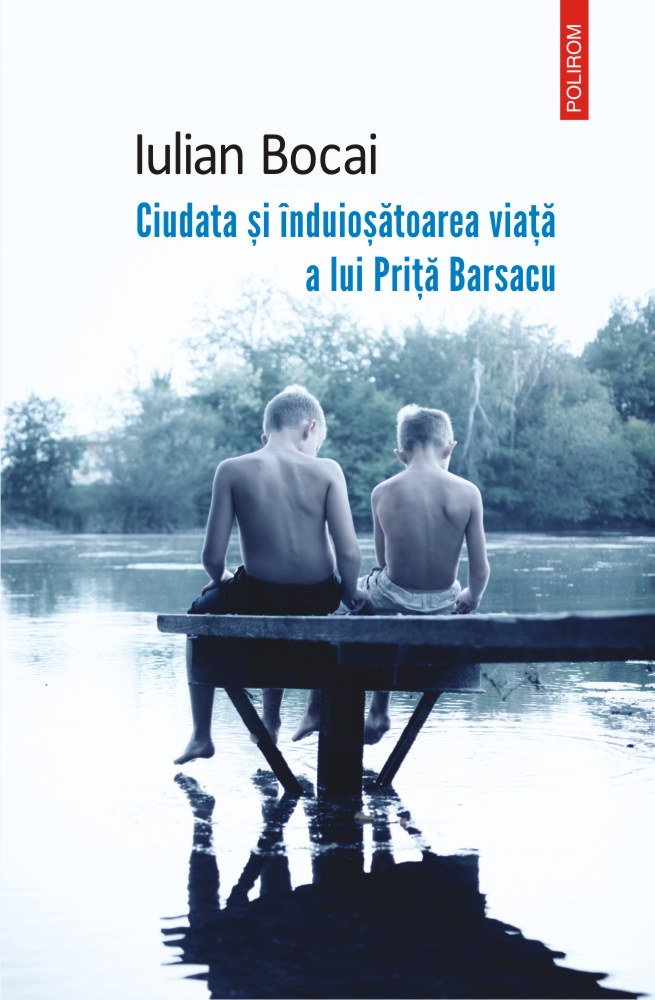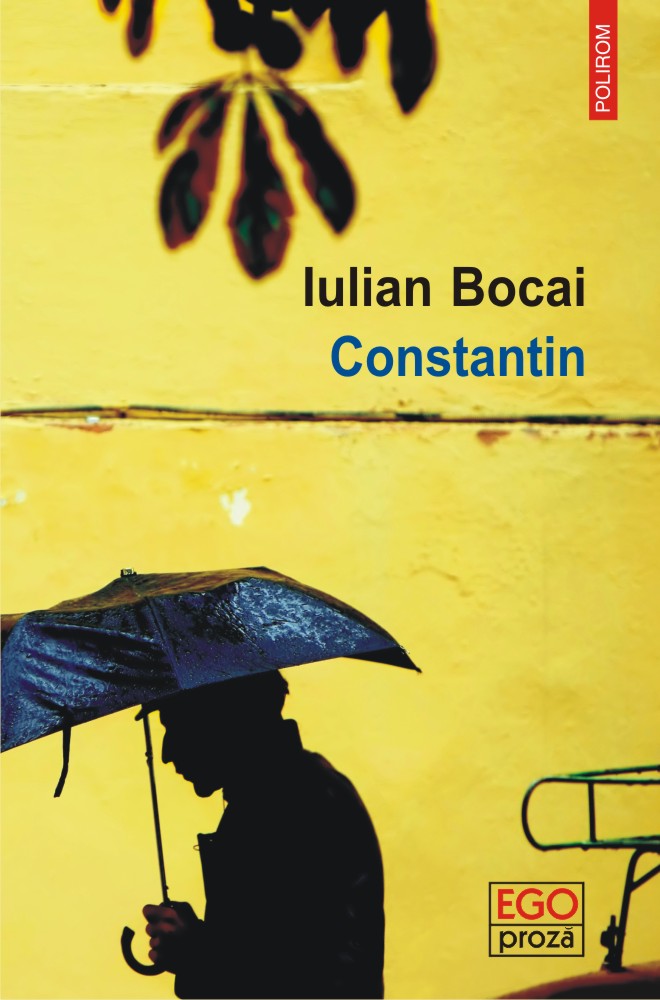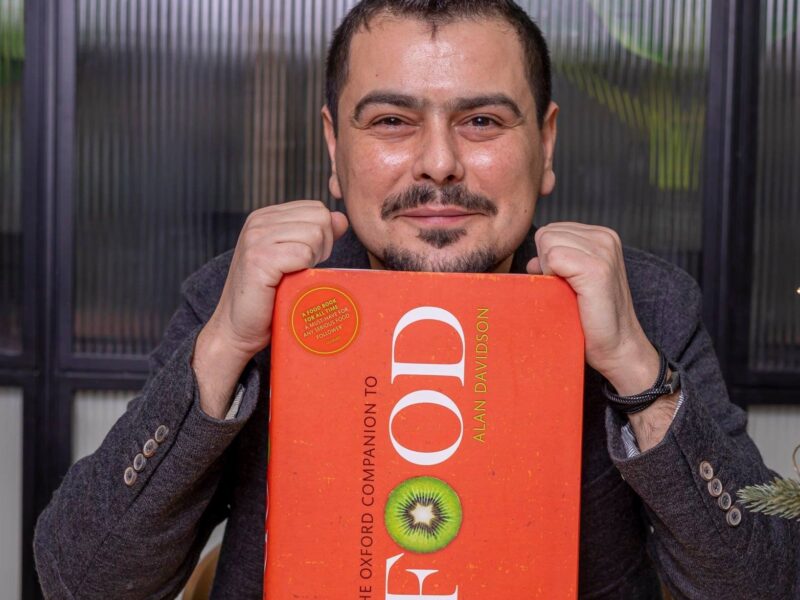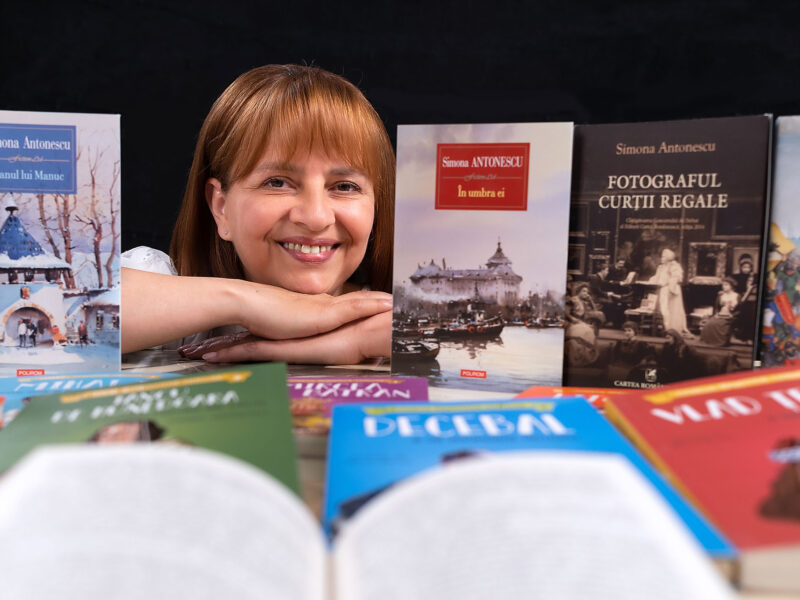Iulian Bocai is a writer, researcher and translator. He debuted at Polirom with Ciudata și înduioșătoarea viață a lui Priță Barsacu/The Strange and Endearing Life of Priță Barsacu (2018), followed by the novel Constantin in 2019. In 2020 Tracus Arte published his Filologii. Instituționalizarea Studiului Literar în Europa/The Philologists. The Institutionalization of Literary Studies in Europe, originally a PhD thesis, which he defended at the Faculty of Letters, University of Bucharest. He translates from English, French and German, and he studies classical languages. He takes pleasure in translating poetry and he also has a blog.
I’ll start backwards. What comes next, after Priță Barsacu and Toader Constantin?
If there’s anything that comes next, it surely won’t be autobiographical, or a character and local life study. What I started now is more of an imagination exercise. I say “if” because I felt that I was beginning to distance myself from literature before writing those novels, and I sometimes think that they were both more like love confessions for an adolescence ideal. The truth is that I don’t really know how much literature I want to write and you caught me in a period in which this is exactly what I keep doubting: that literature has the ability to mean something for me, personally, and for the people who read it, in general. This discouragement does not arise from literary dissatisfaction, but from existential dissatisfaction: it’s not very clear to me if literature is the right language for what I want to think about in the future. It seems to me that it mostly points its finger at things and that some things, in order to be understood, must be unravelled, and not simply pointed at. Sometimes it seems easier to express a thought directly rather than to think about it allegorically, like it seems to force you to do. Great literary ideas can exist without being made explicit and most of the time it’s better that way; but the flipside is that if you go to a novel with questions, you’ll mostly only receive brackets, because literature occupies this ambiguous area, at the border between lived live and explained life.
You were saying in an interview that your debut at Polirom, following the contest you won in 2018 with The Strange and Endearing Life of Priță Barsacu, turned your life upside down. What changed and how did it change?
I spoke too soon. In reality, nothing much changed, I still live without a great deal of certainty about tomorrow, with days in which I work more than I think, in order to buy myself a few hours’ rest, in which to think more than I work. For a while, I thought that my confidence in my own artistic/intellectual abilities changed, but I actually think that I doubt myself more now than I did before, or at least I doubt myself in new ways.
Your next novel, Constantin, appeared pretty fast after Priță. Was it an outcome of this new life, or did you already have the material?
Constantin was an outcome of the fact that I had a doctoral scholarship and I wanted to write another book while I was still able to do it; this wish was clearer in my head than the idea of the novel, in any case. The material was my past and I only had to decide what story I wanted to tell, and how, even though I did not get it right at the first try.
Did you do, as they say, “research work”, for the novels you published? For instance, did you walk on the streets behind the Hill of the Patriarchal Cathedral, where Toader Constantin’s house was, or did you go fishing, like Priță Barsacu?
There wasn’t much need for that, because both books are more like books of remembrance and intuition. I had already been there, all I had to do for the novels was to revisit them in my memory. All those places already belong to my life, but when I’m asked about this, I don’t really want to say more than I wrote in my books, because I don’t know if I would do it better; if you speak for your books in person better than they can speak for themselves, that means that you failed at writing them.
Priță was edited by Mădălina Ghiu, and Constantin was edited by Lucia Răducea. What were those collaborations like? Are there huge differences between the initial versions of those texts and the ready for print versions?
I worked for Constantin, yes, it has a longer story, for Priță , no. All of my collaborations with Polirom went well, and Constantin was actually rejected by Mădălina Ghiu, who worked at the Bucharest headquarters of the publishing house back then, and because I did not want to give up, I edited it thoroughly and sent it to Iași, where they accepted it. Mădălina Ghiu did the right thing by rejecting it, it was much worse in its initial version. Now, insofar as you can tell in the general disinterest towards recent Romanian literature, it happens to be my most loved book.
In January 2020, Scena9 published one of your short stories about break-up – “Ce știam atunci/What I knew then”. Which leaves you with a pit in your stomach and a screw in your brain. Where do you take those life pieces from and how do you turn them into literature? From life itself?
Only from life. If you take them from anywhere else, you’re not doing what you’re supposed to. Well, “life” can mean many things; here, it happens to mean my own life, out of which I could write a few similar stories, not because it was incredibly adventurous, but because I carefully recorded my sadness and I know how to explain it. But I think we have to leave biography aside and think more often about novels as constructions, not as remembrances. For this, we have to see prose less as a type of art which can be personalized and more like an essay about the world, or in any case, as a commentary which can reveal the world to you in more ways than a story about your life can. I am also pretty sick of personal stuff, it’s true.
In 2020 your doctoral thesis was published at Tracus Arte, with the title Filologii. Instituționalizarea Studiului Literar în Europa/The Philologists. The Institutionalization of Literary Studies in Europe. A study which is very well-documented, with solid arguments. How do you manage to go from the academic discourse to the discourse of fiction and avoid the bookish tone in the prose, something which not many academics turned writers manage?
What is usually called “academic discourse” is sometimes the result of giving up on the ambition that the things you write should be well written, no matter if they are letters, essays or articles. It is perhaps the most erroneous expectation which is inculcated in Letters students, and not only in them, that seriousness, strength and profound thinking must be translated into the sobriety of the style and in its lack of personality. Serious thinking does not exclude writing and I know many thinkers in whose case it seems to require it. Actually, I’m still rolling in my mind the idea of a novel about an anarchist character, which begins with an academic discourse spanning about one hundred pages, in which the history of European anarchy is simply presented to us, as though it were a research paper. After that, you get into the story, as though nothing unusual had happened.
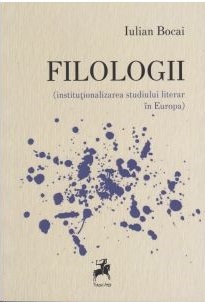
And in which of the two types of discourse do you feel more at home?
In both of them, even though I think I have more talent and more patience for the literary one, despite the fact that I am more preoccupied with the other one, at the moment. But when I oscillate between them, I don’t feel at all that I have to choose between types of discourse – more like between areas of concern. It’s true that there is a certain attention to information in the academic discourse which tempers speculations and metaphorical associations, and from here the impression that it would be more “reserved”. But it doesn’t have to be, not stylistically, anyways.
Do you follow the reviews of your books? Do they influence you? Do they impress you?
I read all of them, even if they’re published on blogs, or on social networks, and I always read them with great interest, but with little profit. I am not sure you can be unaffected by the responses to your books, because you did not write them in a void and you do not think about what you want to do next in a void. I don’t feel as though I’m losing anything even when people write negatively about me – it’s a great advantage to be read and discussed: you ponder upon the things you did and you have more occasions to bring them forward for discussion, and in this way, your understanding is enriched, even by its mere contestation. You’re simply offered more occasions to figure out what it is with you, what you want to do, something you cannot have access to unless you’re read and discussed.
After the release of your first novel, you were invited to and you participated at the Festival du Premier Roman de Chambéry. What was it like there?
A Tunisian woman told me that I looked good in a bakery in town, and Florica and Jean-Louis Courriol were excellent hosts.
You received numerous awards, both for your novels and for your study published at Tracus Arte. Did those awards influence your journey? Did they help you in any way?
I would like to say that they are important and on a certain level they surely are, but I don’t believe that it’s a very profound level, and if I wake up one morning in a bad mood or lacking in confidence, the awards I received generally do not help me. They did not influence my journey, though, because even before I published anything I was obsessed with those things, and I would have done them regardless of whether I received an award or not. Awards are like pain-killers, useful on the day you take them.
You translated from German, French and English, collaborating with Art, Arthur, Polirom, Booklet, All. How did you begin to translate and how did you get in touch with those publishing houses?
I started working with All in 2010 or 2011, because a friend, Dorina Ivan, had just been hired there. She gave me a very bad romance book to translate; in the meantime, Dorina left the country, but back then we were both fresh graduates of comparative literature and the spectrum of our hiring possibilities was very narrow. It was a ridiculous book, with the art of hearing heartbeats, paid worse than it was written. I translated it by ear during a summer holiday and they gave me another one. I started working at Art because Bogdan Coșa recommended me to Laura Albulescu in 2012, when I really needed a place to work, because you could not live off the books you translated. I started working at Polirom because of Dorina, and then because of my written books; I started working at Booklet because I knew Ruxandra Câmpeanu. I always started working at certain publishing houses because I knew someone and not because of my personal merits; actually, when I began translating and copy editing, I used to do horrible mistakes and I have never truly enjoyed it. The only thing I translate and copy edit with pleasure is poetry, and, sometimes, philosophy.
How do the relations with the publishing houses go when it comes to requirements, deadlines, remuneration?
At Art/Arthur, Polirom and Booklet I only worked with professionals and I never had any reasons to complain, not even when I received translations which had been altered way beyond the point of one’s ego. The beginnings were more adventurous, financially, when nobody knew me and I found work at random, but I believe that people know which publishing houses to avoid; as for me, I am required to do more things than I can manage. I can’t remember, while working with either one of them, any instance where the payment was delayed, except for ten years ago. Our problem is that we don’t have any decent academic publishing houses yet, which would cover ultracontemporary research, and we depend on general publishing houses for this, and they depend on the market too much in order to do this well.
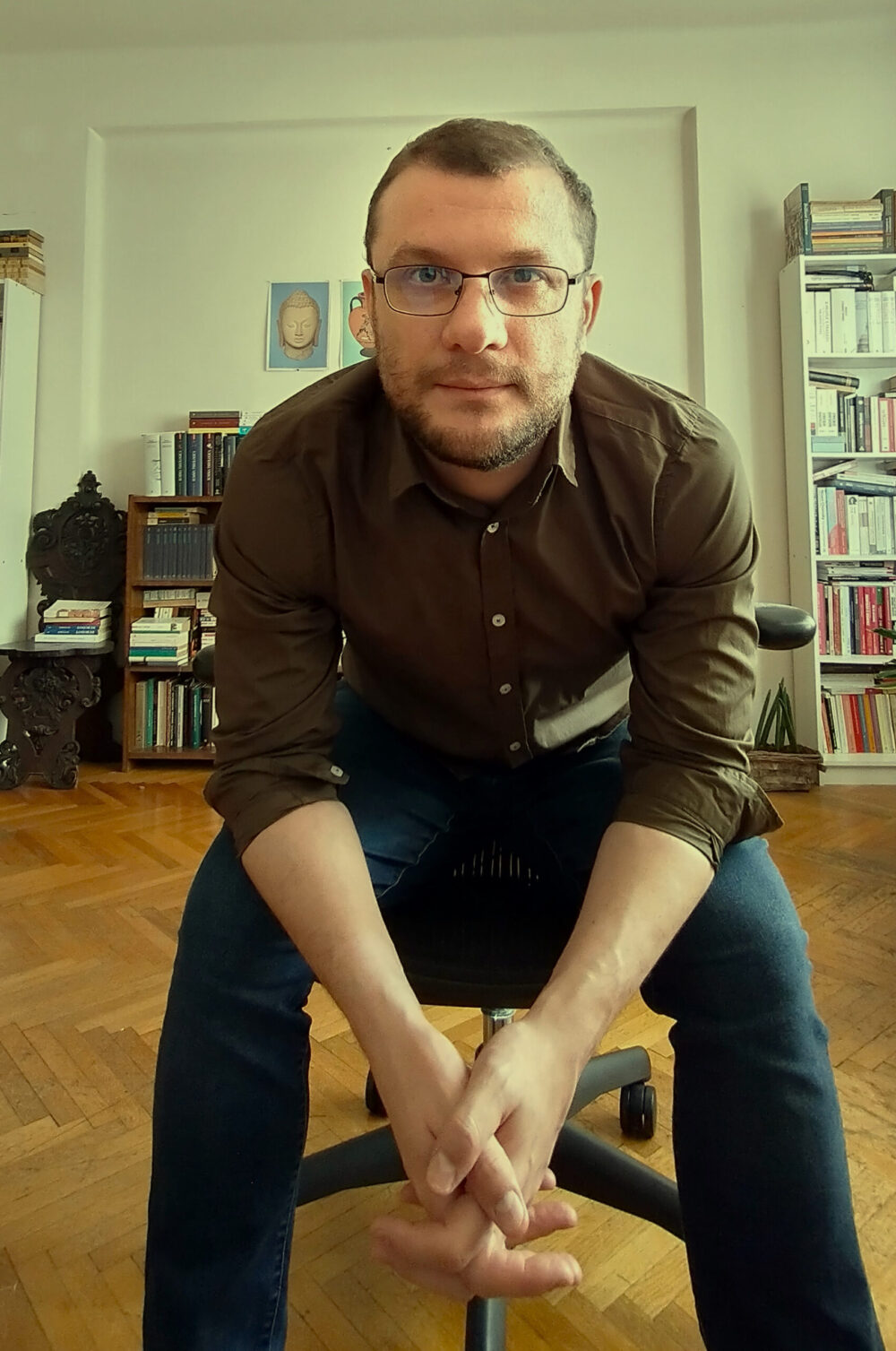
You translated, among others, books penned by Patrick Modiano, Oscar Wilde, Michael Ende, Tomi Ungerer and Malala Yousafzai. Do you have the freedom to choose the authors you translate or do you go by the editors’ choices?
I don’t have this freedom, or not very often, but there were instances when I suggested books and they were accepted, or when I had friends among the editors and I received good books. The problem is that the things I am interested in do not sell, and in many instances they do not even exist on the publishing horizon of the Romanian publishing houses, but I am happy that I was able to translate About Civil Disobedience by Thoreau, which I suggested and with which I am bound by anarchist nostalgia from my years as a student.
Which book among those you translated is dearer to you?
About Civil Disobedience and maybe Modiano’s Catherine Certitude . Modiano received the Nobel Prize on a Monday, the publishing house signed the contract for the book on Tuesday and by Friday or Saturday I had already translated it and sent it for typesetting. It was easy and subtle and I always liked children’s books, because they can artistically mimic purity.
And one question which has been haunting anyone who has ever tried to learn foreign languages. How did you learn them? Because, among those mentioned earlier, there would also be Spanish, I remember, ancient Greek, and Latin, which took me back to Bătrânul Safo/The Old Sappho – your blog for translations, poetry and other cool stuff, which you wrote together with Bogdan Coșa and Adrian Haidu (which has become, the blog, not Adrian, an object of admiration among the students from Letters).
English from the television and then in school and in university; I studied French for 11 years in school (my class teacher in middle school taught French and she made me memorize texts by heart), I did Spanish for three years in high school, just enough to know what a text says, I studied German for one or two years in middle school, but not enough for it not to be necessary to learn it by myself, because I needed it in the academic setting, and now I am trying to learn Greek and Latin for the very same reason (I cannot learn these two alone, they are too difficult and I need the understanding and the patience of professors, whom I found, thankfully, and who are understanding and patient). But I believe the languages I wanted to learn and couldn’t learn are more numerous than the ones I managed to learn. Generally, this is how it goes with languages: I only learn them if I absolutely need them and I only learn as much as I need to from them. Let’s imagine that everybody can actually speak all the languages they can read. Fluency is hard to reach and it usually only happens for no more than two or three languages. And sometimes knowing the literary language does not mean that you’re able to use the spoken language, which can be seen in Nabokov’s live interviews , for instance. Sometimes I get scared when I figure out that there is a natural variant of saying things in English and I only know the bulky one, of paraphrasing; and there are languages you hold very close to you and which begin to atrophy if you don’t use them.
Can you live off writing? In whatever shape it takes.
I’d say “no”, but I believe “absolutely not” is more suitable. But I try to be optimistic and to say that the great transformation taking place now in Romanian literature is not one of cultured/high Romanian literature, which seems to be plummeting if you measure it by its financial results, but rather of children’s literature, where the print runs surpass milestones other kinds of literature cannot even hope to aim for.
You were saying at one point that you want a long break, in which to do nothing, to chop wood or to read Philip K. Dick and Cormac McCarthy. Did you chop wood? Did you read them?
I did not, but I read Blood Meridian last year and I liked it. All I want now is a few years without work, in order to write another book or two. On the other hand, I got bored by books, and I am even bored by my boredom of books, so maybe I need to do nothing for a while.
The photos belong to Iulian, or they are taken from the publishing houses’ sites. [Translated into English by Irina-Adelina Găinușă.]
